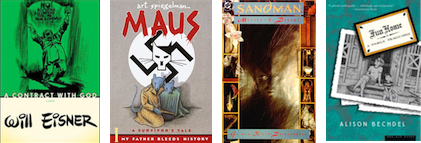They say a little knowledge is a dangerous thing. Well, like most people trained in literature but teaching a 4-4 load, I have many first-year composition students every semester, but I really only have “a little knowledge” about the best practices for doing so.
Last summer I was scanning the Bedford Bibliography for Teachers of Writing and found Richard Haswell’s 1983 article “Minimal Marking” (JSTOR & Google Scholar), which provided some scholarly authority to support the way I think about responding to student writing. In this fairly brief piece, Haswell argues for, as you might imagine, “minimal marking” on student essays. The then-current empirical research on teacher response and student learning in composition classes concludes that excessive written commentary on student essays is not effective. Instead, Haswell advocates using only a few marks to indicate the presence of errors in a given line of writing without specifying what the error is or how to correct it and to concentrate on only a few kinds of errors at a time, rather than trying to identify everything that is wrong with the essay. The student is then given the opportunity to make corrections and return the essay for the final grade. I am certain that subsequent research has added to Haswell’s short observations (Google Scholar lists 25 sources citing Haswell), but I haven’t read it.
This approach is appealing to me for a couple of reasons. First, it is much less labor-intensive then my “natural” inclination to copy edit the essay for the student; 4 classes a semester is a lot of grading, and it is quite tedious to provide that much feedback on each essay, especially if the research concludes it’s not very helpful. In fact, to provide more feedback is less helpful than providing a minimal amount of the right kind of feedback. The ideal approach is summed up quite nicely by Chalet Seidel in a course blog entry from a couple of weeks ago: “identify patterns of error rather than mistakes, limit marginal comments, don’t copyedit, provide clear guidance for revision in an end comment.”
Second, and more importantly, this approach can be adapted to the “problem-based learning” pedagogy that I find so attractive. Problem-based learning encourages responsibility, initiative, and independent thought in students, and when I first learned about it, I realized that it was the kind of teaching I have long tried to provide. Students need to “own” their education, to pull at the information that I push their way.
There’s an inherent tension, though. On the one hand, I know that students do especially well when they are given very detailed and very specific instructions regarding what they’re supposed to do for an assignment. On the other hand, I know that the world beyond the classroom more often than not presents you with situations that lack instructions of any kind, much less those that are “very detailed” or “very specific.” So in my experiments with implementing problem-based learning, I’m walking a fine line between too much and too little in the way of explanation. It’s not always coming out perfectly, but on the whole I’m happy with the results.
In my composition classes this semester, I’m trying out my own version of Haswell’s method of minimal marking on the pages of the students’ essays. I am, however, requiring them to complete the different steps of invention, drafting, revision, and editing. And I require them to have a 15-minute conference with me during the revision process to discuss their paper. I find that conversation is a much more efficient and information-rich method of giving feedback when that feedback can still matter to the student’s performance. In fact, I’ve found that the final products (essays and presentations) at all levels of instruction turn out better when students are required to have certain “along-the-way” tasks completed by certain dates before the final due date, and when they are required to actually prepare in particular ways for their conferences with me.
For my composition courses it’s a new approach, and I don’t know how it’s going to turn out. So far, there’s not been a big savings in time, but I’m chalking that up to my having to learn a new way of doing things.
I’ll let you know how it goes.


